Hong Kong
Hong Kong property investments soar 95% in H1
Hong Kong property investments soar 95% in H1
Investment volume in APAC commercial properties reach US$83.5b in the same period.
‘More aggressive’ Hong Kong investors expect a return of 11.4%
This is a new high, according to Schroders Global Investor Study.
Gov’t extends $377m funding for hard-hit tourism sector
The new round of funding will benefit travel agents and their staff.
CK Asset profit rises $8.35b in H1
This is up from $6.36b in the same period last year.
HKT profit steadies at $1.9b in H1
The telecom firm's total revenue grew 7% to $15.64b over the same period.
Events are evolving, but is your agency standing still?
As the pandemic anxiety in Hong Kong recedes amid the relaxation of social distancing rules, local business sentiment is improving, with the help of measures such as the Consumption Voucher Scheme.
That sounds like good news to the hard-hit MICE industry. After the pandemic put a stop to face-to-face events more than a year ago, the industry explored new ways to meet demand for brand activation and audience-brand engagement, such as by shifting audience experience safely online or offering an increasingly ‘integrated experience’ – a seamless confluence of live physical and online content. These new product models helped the industry survive the pandemic; but with the worst of the emergency over, is it time to focus on preparing for a return to in-person events?
The answer is ‘no’. The new product models, and especially the integrated experience, are not merely stopgap measures or an outgrowth of contingency planning. Online and integrated experiences are plainly here to stay, in part due to their inherent applicability during future crises. Like the pandemic, we probably won’t see the crises coming – which is why we should always treat predictions with healthy scepticism.
As things are, though economic activity in Hong Kong has seen some improvement, it is still below pre-recession levels, and even the predictions aren’t entirely rosy. As shown in advance estimates on GDP for second quarter of 2021 released by the government in late July, the economic recovery of Hong Kong is slightly slower than expected and remains uneven: GDP rose by 7.5% from a year earlier, following 8% growth in the prior quarter.
Furthermore, the OECD’s latest Economic Outlook projects that global income at the end of 2022 will be around US$3 trillion less than was expected before the pandemic.
Other reasons why online and integrated will stay around are the same as before the pandemic: the experiences they offer can be both memorably distinctive and shared by a potentially unlimited audience, helping brands secure an impressive event ROI. The industry and market had already been moving in their direction, and the crisis merely accelerated the shift.
Virtual will become even more of a mainstay when the digital natives of Gen Z and Gen Alpha grow into consumer market dominance. At that point, offering a choice of participating in live events either in person or via a laptop or mobile device will become a best practice. Further development of the model will very much be in line with their expectations, habits and needs.
It is already obvious that agencies who embrace the integrated experience will be the most likely to sustain their business in the long term – but with one caveat; their success will hinge on whether they can actually deliver what they embrace. That – and even capturing future opportunities – will require fundamental organisational change.
In the past, MICE industry agencies were specialised ‘live event production experts’, ‘digital marketing strategists’ and so on. When it comes to planning and delivering integrated events, however, the process becomes hugely more intricate, complex and blurry. Input is required from a wider spectrum of creative, marketing, analytic, digital, technical and administrative talent, as well as a whole new level of coordination. Just as the boundaries between analogue and digital are erased, so will be the traditional boundaries between offices, teams and individual skill sets. As a matter of necessity, nobody can afford their own silo any longer.
The changes already underway may seem challenging, but it is worth noting that change is nothing new to the MICE industry; it is fast-changing by nature, requiring its professionals to continuously redefine and reimagine how to engage with audiences. As usual, the next industry renaissance will be led by those who can meet challenges with resilience.
Deloitte, HGC Group to provide cyber protection to HK companies
The partnership will offer prediction and prevention, detection, protection, and response to HK companies against cyber risks.
How SG firms can tap GBA opportunities via Hong Kong
Chief Executive Carrie Lam said the city is an “ideal gateway” for businesses.
CK Infrastructure profit climbs 5% to $3.01b in H1
This was mainly due to the increase in corporate tax in the UK.
6 in 10 HK firms willing to pay higher rent for green buildings
Those leasing green buildings pay a rental premium of 1% to 7%.
Business receipts up nearly 10% ending eight quarters of decline
This is thanks to the contained epidemic situation, as well as Hong Kong’s economic recovery.
Hong Kong’s Airstar Bank launches pilot trial of SME Easy Pay Loan
After transferring their existing installment loan, customers can enjoy a first 24-month principal payment holiday.
SJM Holdings’ loss attributable to owners rose to HK$1.47b in H1
It reported a HK$1.4b loss in the same period last year.
HK Electric interim profit rises to $880m
The company recorded $811m over the same period in 2020.
HK lists Macau as 'at-risk' places for COVID
Residents who stayed in Macau in the last 14 days will be ineligible to return to Hong Kong.
Property sales up 6.1% in July
Total consideration for the sales amounted to $94b.
HKTB begins Free Tours Lucky Draw for vaccinated residents
Some 10,000 eligible residents may win a free tour.




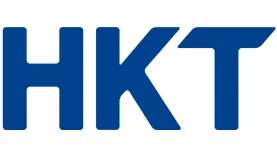

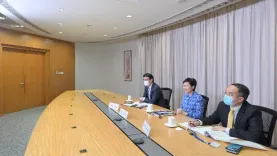


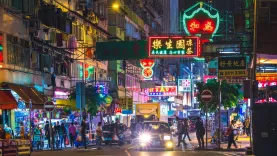


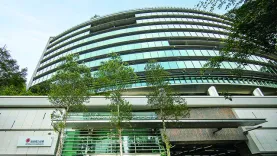
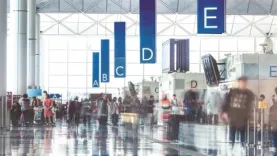



 Advertise
Advertise









